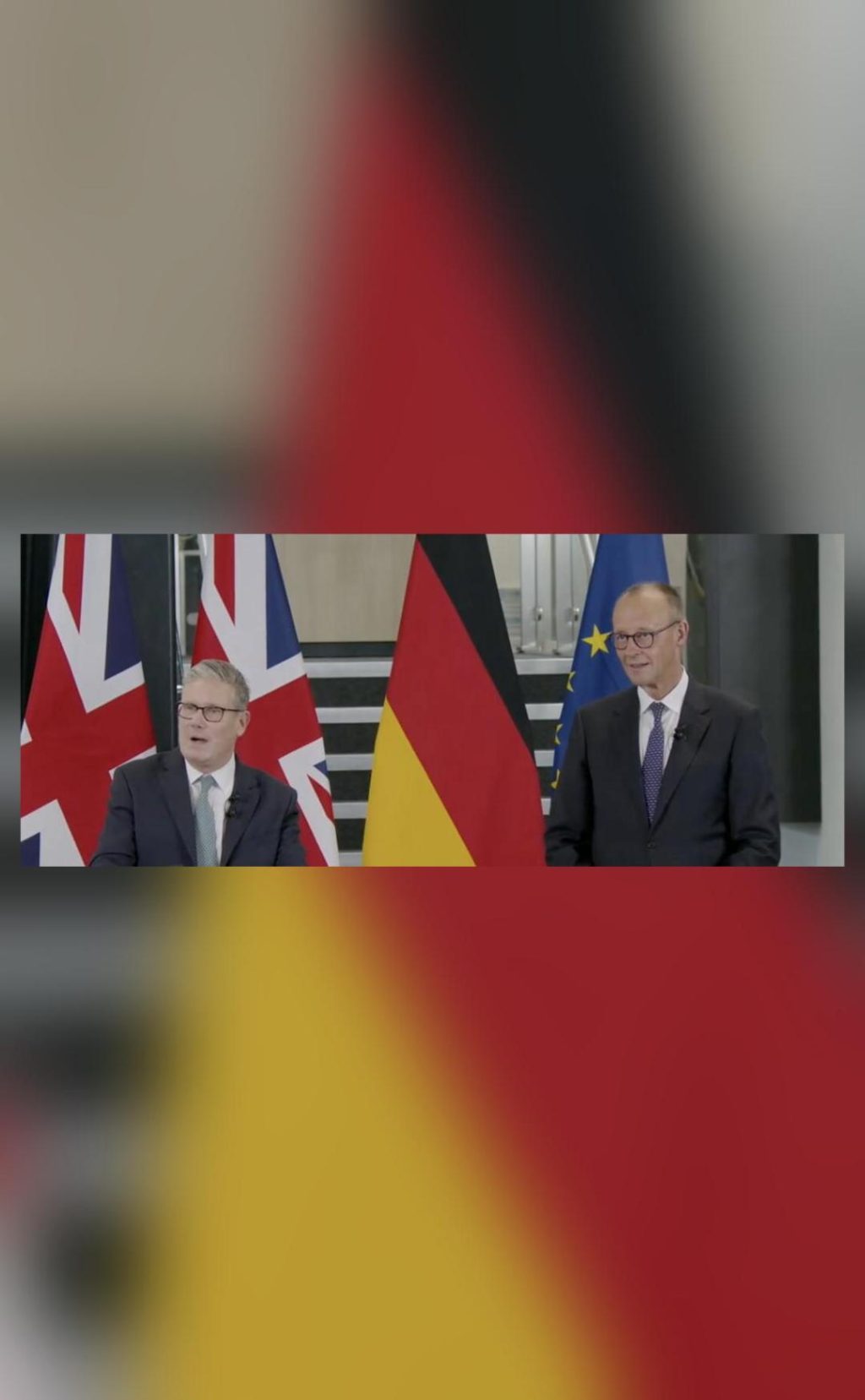
UK, Germany Sign Treaty to Enhance Defence & Migration Cooperation
In a significant development, British Prime Minister Keir Starmer and German Chancellor Friedrich Merz signed a treaty on Thursday to strengthen defence and economic cooperation between the two nations. This historic agreement comes 80 years after the end of World War II, marking a new chapter in the bilateral relations between the UK and Germany.
The treaty aims to boost the defence and security cooperation between the two countries, with a focus on countering common threats and promoting stability in the region. The pact also includes plans to strengthen economic ties, with the goal of increasing trade and investment between the UK and Germany.
One of the key areas of cooperation is the fight against migrant smuggling. The treaty commits both countries to work together to tackle this issue, including sharing intelligence and best practices to prevent and disrupt the activities of criminal networks involved in people smuggling.
In addition to defence and migration cooperation, the treaty also includes plans to strengthen connectivity between the two countries. As part of this effort, the UK and Germany have agreed to establish a new direct rail connection, which will help to boost economic and people-to-people ties between the two nations.
The agreement was signed during a meeting between Prime Minister Starmer and Chancellor Merz in Berlin, where they highlighted the importance of the treaty in deepening the ties between the UK and Germany. The two leaders emphasized that the pact is a testament to the strong friendship and partnership between the two nations, and that it will help to promote stability and prosperity in the region.
The UK and Germany have a long history of cooperation, and this treaty marks an important milestone in their bilateral relations. The two countries have a shared commitment to democracy, human rights, and the rule of law, and they have worked together on a range of issues, including trade, security, and climate change.
The treaty is also seen as a response to the changing global landscape, where both the UK and Germany are facing new challenges and threats. The agreement reflects their shared concerns about the rise of authoritarianism, the threat of terrorism, and the impact of climate change, and it demonstrates their commitment to working together to address these challenges.
The UK’s decision to sign the treaty is also seen as a significant development in its post-Brexit foreign policy. The country has been seeking to strengthen its ties with its European partners, and this agreement is a key part of that effort. The treaty demonstrates the UK’s commitment to maintaining a strong relationship with Germany, and it highlights the importance of the special relationship between the two countries.
In conclusion, the UK-Germany treaty is a significant development in the bilateral relations between the two countries. The agreement reflects their shared commitment to defence, migration, and economic cooperation, and it demonstrates their commitment to working together to address the challenges of the 21st century.
Source:



